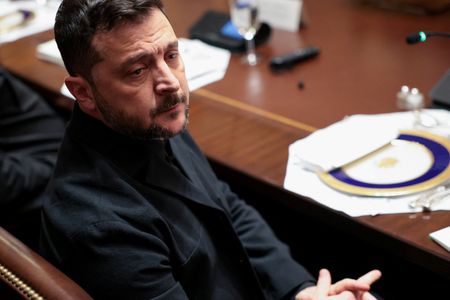By Joice Alves
LONDON (Reuters) -Sterling was little changed against the euro despite data on Tuesday showing Britain’s borrowing in the first half of the financial year was the highest since the pandemic, as investors said a tough budget next month is already priced in.
Against the euro, sterling was little changed at 86.80 pence.. It dipped 0.09% against a strengthening dollar to $1.3393, after briefly touching a six day low.
Government borrowing in the first six months of the tax year totalled 99.8 billion pounds ($133.94 billion), up 13% from a year earlier and 7.2 billion pounds more than forecast by Britain’s budget watchdog.
In September alone, the government borrowed 20.2 billion pounds. It was lower than a median forecast of a 20.8 billion pound deficit in a Reuters poll of economists.
The borrowing overshoot in the April to September period ran above official forecasts and keep up the pressure on finance minister Rachel Reeves as she prepares next month’s key budget.
“The UK government is in an unenviable position. And we know that, and investors know that. And we know that tax has to change and be moved up. That’s been factored in,” Guy Miller, chief market strategist, Zurich Insurance Group.
“I wanted them to do this as quickly and as clinically as they could because it just removes that uncertainty. There’s no reason to prolong it because the market’s already pricing it,” he said.
Reeves has signalled that she will raise taxes and cut spending as she tries to stay on course to meet fiscal targets and avoid upsetting investors who have already pushed up British borrowing costs sharply.
Reeves said last week she would like to have a bigger fiscal buffer to cope with volatile global markets, but creating one in her November 26 budget would involve tough trade-offs.
Investors are also awaiting UK inflation data due on Wednesday. Economists polled by Reuters expect CPI inflation data for September to rise to 4% from 3.8% the previous month.
(Reporting by Joice Alves, additional reporting Dhara Ranasinghe, editing by Alexander Smith)










